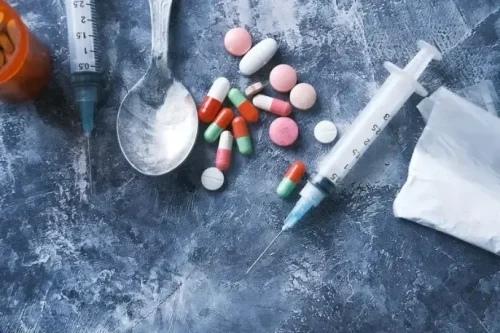
In brief, we understand that feeling good after the first few months might seem like an appropriate time to pull back from your sobriety or moderation toolkit, but we encourage you to instead lean in. You will only continue to fortify your good habits and solidify your progress towards treating alcohol dependence. In addition to changing your outlook on life with a therapy like CBT, you’ll want to make a break from people and situations that encourage drinking.
Does everyone experience the 4 stages of alcohol withdrawal syndrome?
- Over time, however, the body builds a tolerance to alcohol, and a person may have to drink more and more to get the same feeling.
- Going through the ways your addiction has taken away from your life and how it has impacted others may be painful.
- They’ll likely still feel the temptation to drink, but they’ll be focused on their goal.
- For individuals with severe alcohol dependence, however, withdrawal symptoms can be more severe and may require medical attention.
This journey, while deeply personal, follows a pattern that has been observed and studied by researchers and clinicians for decades. Understanding these stages can be a powerful tool for those struggling with addiction, as well as for their loved ones and healthcare providers. Alcohol use disorder frequently occurs alongside other mental health conditions. Pre-existing mental health conditions can sometimes lead people to turn to alcohol to cope with their symptoms. In other cases, long-term alcohol exposure can increase a person’s risk of developing a psychiatric illness. Many people with substance use disorders, including alcohol dependence, have co-occurring disorders such as anxiety, depression, bipolar disorder, post-traumatic stress disorder, and other mental health conditions.
- The important feature is that the interest avert boredom and provide rewards that outweigh the desire to return to substance use.
- Working with a specialized therapist in alcohol therapy can be especially helpful for identifying triggers, working through past traumas, and developing a plan for when triggers do arise.
- Cravings are the intense desire for alcohol or drugs given formidable force by neural circuitry honed over time into single-minded pursuit of the outsize neurochemical reward such substances deliver.
- Sleep is essential for shoring up impulse control and fostering good decision-making.
- It’s not about telling someone what to do, but rather helping them uncover their own reasons for change.
- In this article, we will explore the stages of alcohol recovery, what to expect during each stage, and tips for navigating the journey.
The Stages of Alcohol Recovery: Ultimate Guide

You can expect to experience alcohol withdrawal symptoms during the acute phase of alcohol detoxification. These symptoms can range from mild symptoms such as headache and anxiety to more serious alcohol withdrawal symptoms such as tremors, hallucinations, and seizures. People who are heavy alcohol users and quit cold turkey (stop drinking abruptly) can develop a severe life-threatening form of alcohol withdrawal syndrome called delirium tremens or DTs. This is relatively rare and occurs in 5-10% of alcohol-dependent people.
Supportive Networks and Aftercare Programs
These changes can compromise brain function and drive the transition from controlled, occasional use to chronic misuse, which can be difficult to control. The changes can endure long after a person stops consuming alcohol, and can contribute to relapse in drinking. These support groups and their recovery Steps provide social support to people when they need it. This support can help people stay off drugs or alcohol and make other positive changes in their lives, according to the National Institute on Drug Abuse. In this stage, a person recognizes that their drinking is problematic and is considering a timeline for quitting.

Addiction and Mental Health Resources

Addressing potential obstacles and triggers is also a key part of preparation. This involves identifying situations, emotions, or events that might tempt you to return to addictive behaviors. Once identified, you can develop strategies to cope with these triggers. For example, if stress is a trigger, you might learn relaxation techniques or plan to call a support person when you’re feeling overwhelmed.
Approximately 15 percent of those who relapse regress to the precontemplation stage, and approximately 85 percent return to the contemplation stage before progressing to the preparation and action stages. Most people recovering https://ecosoberhouse.com/ from addiction will cycle through the stages of change three or four times before completing the cycle without a slip. The alcoholic is sober and has no cravings for alcohol, and there is no threat of relapse.
Drugs & Supplements

At this point, the individual is enjoying the benefits of quitting alcohol while focusing on sustaining the achievements made in the action stage. During this stage, people are experiencing the negative impacts of their alcohol addiction, stages of alcoholic recovery but they have no intention of changing their behavior. One focus of this stage of rehab is obviously to maintain abstinence by avoiding a relapse. You will learn the warning signs and the steps that can lead up to a relapse.
Alcohol Withdrawal Symptoms
Medical Supervision and Support
- One widely used model can be summed up in the acronym CHIME, identifying the key ingredients of recovery.
- While some alcoholics progress through the first five stages of recovery in a linear fashion, many do not.
- After approximately 90 days of continuous abstinence, you will move from the early abstinence stage of recovery to the third stage, maintaining abstinence.
- Outpatient treatment may be available for mild-to-moderate symptoms of alcohol withdrawal; however, should symptoms become severe, inpatient care may be required.
- These people should be prepared to seek medical help if the person in detox begins experiencing symptoms of delirium tremens, which include seizures, hallucinations or confusion.
